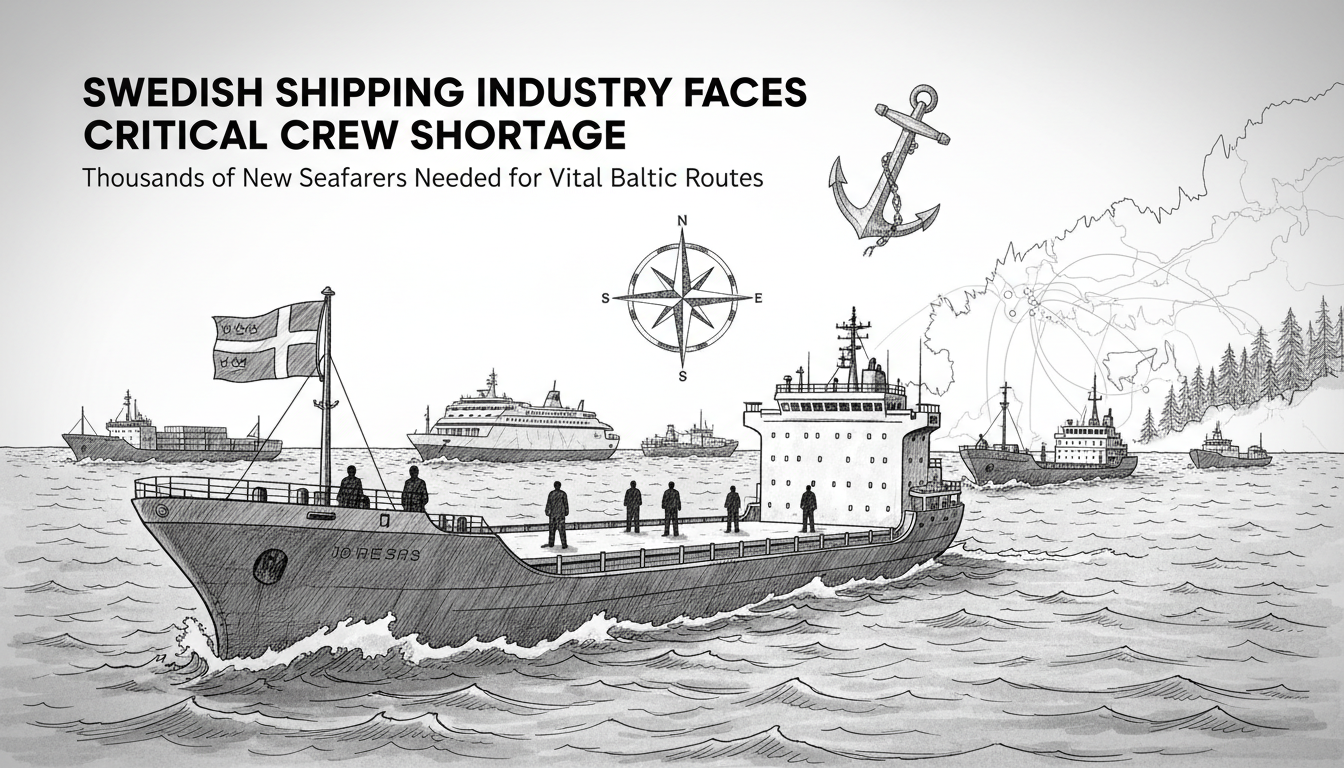Sweden's maritime sector faces a severe staffing crisis that threatens both commercial operations and national security preparedness. Shipping company Finnlines struggles to find enough workers for its four Swedish-flagged vessels operating from Malmö to German and Polish ports. The personnel shortage affects multiple departments from deck operations to engine rooms and hospitality services.
Elisabet Svenning, head of maritime personnel at Finnlines, describes the situation as urgent. She says Sweden needs thousands of new seafarers within the coming years. The company operates on a two-weeks-on, two-weeks-off schedule that provides full monthly pay for half the time worked.
Many young people view the maritime lifestyle as challenging despite the attractive compensation structure. The industry now calls for expanded maritime education programs to address the critical gap. This staffing shortage carries implications beyond commercial shipping.
Swedish maritime vessels play essential roles in the country's crisis and war preparedness. Svenning emphasizes that these vessels must remain properly staffed to maintain national security functions. The situation reflects broader trends affecting European maritime industries.
Germany and Poland face similar challenges in maintaining their merchant fleets. The Baltic Sea region's economic connectivity depends on reliable shipping routes between Nordic countries and continental Europe. Without adequate staffing, these vital transport links face disruption.
Sweden's shipping industry employs approximately 12,000 people directly with thousands more in supporting roles. The current shortage could impact everything from consumer goods delivery to fuel transportation. Industry analysts note that maritime careers offer competitive salaries and unique lifestyle benefits that many young Swedes overlook.
The two-weeks-on, two-weeks-off schedule allows workers substantial blocks of free time while earning full-time income. Modern vessels provide comfortable accommodations and connectivity that address traditional concerns about isolation at sea. Still, recruitment remains challenging across all maritime positions.
This staffing crisis comes as Sweden increases focus on its maritime defense capabilities. The Swedish Navy and civilian maritime resources collaborate closely in national emergency planning. Unfilled positions threaten this coordinated preparedness system.
Shipping companies like Finnlines compete with land-based industries for skilled technical workers. The global nature of shipping means Swedish companies must offer competitive packages to retain talent. Without intervention, the staffing gap could widen as experienced seafarers reach retirement age.
Maritime education programs require expansion to meet future demand. Vocational schools and specialized training institutions need increased funding and enrollment. The industry seeks partnerships with educational institutions to promote maritime careers to younger generations.
Sweden's geographic position as a Baltic Sea nation makes maritime transport crucial for its economy. Approximately 90% of Sweden's international trade moves by sea. The current crew shortage poses risks to this fundamental economic artery.

